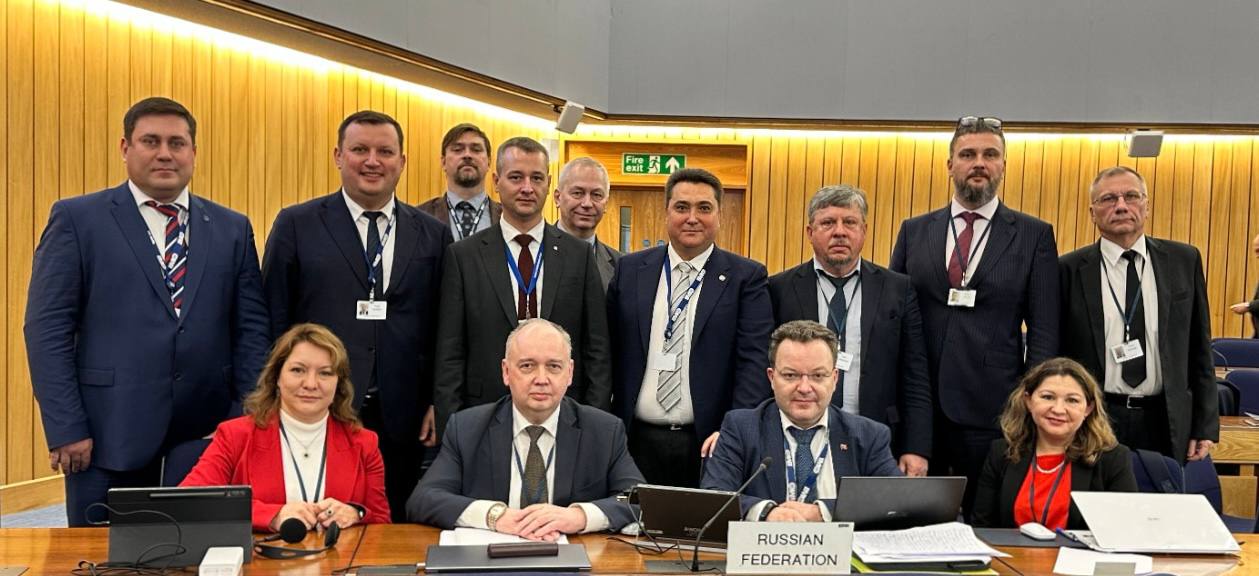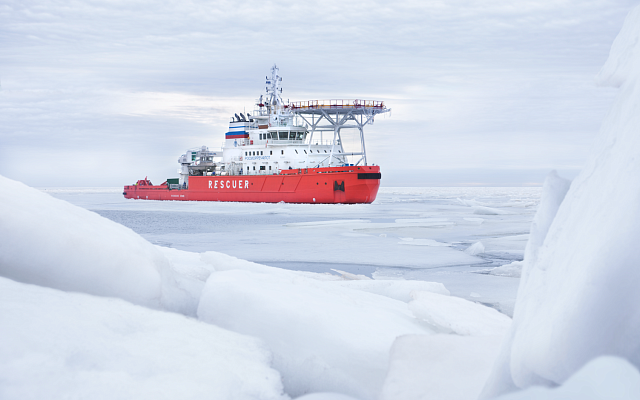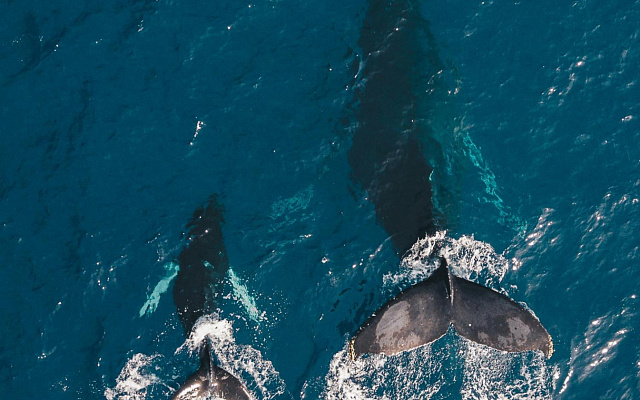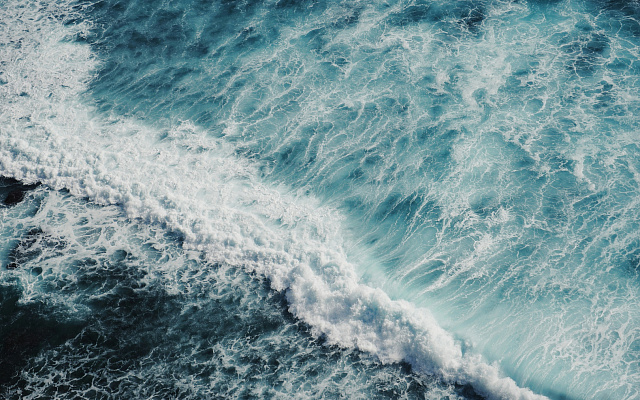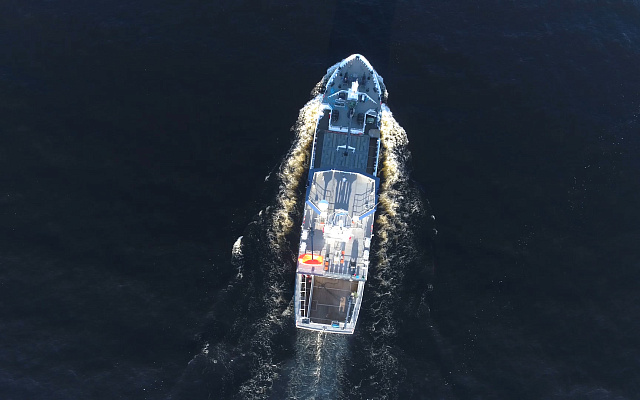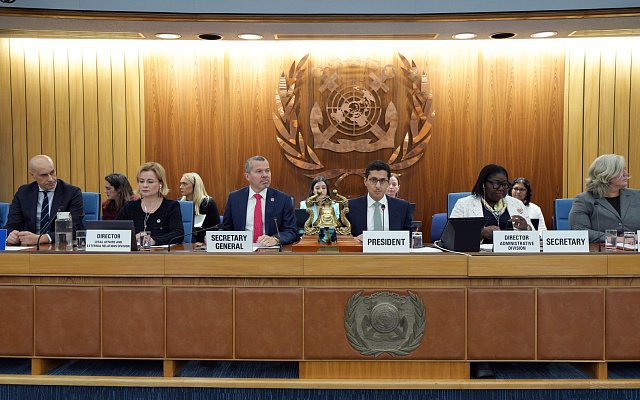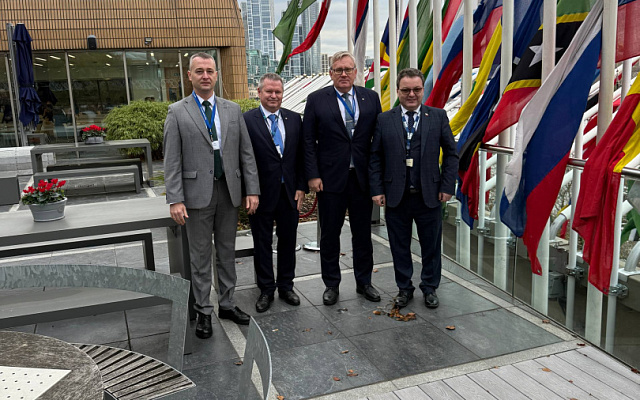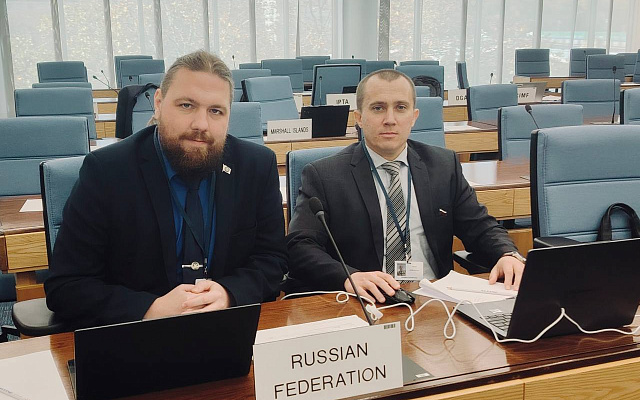Representatives of Russian Maritime Register of Shipping (RS) took part in the 109th session of the Maritime Safety Committee (MSC 109) as members of the Russian delegation. The meetings were held at the headquarters of the International Maritime Organization (IMO) in London from 2 to 6 December 2024.
Representatives of Russian Maritime Register of Shipping (RS) took part in the 109th session of the Maritime Safety Committee (MSC 109) as members of the Russian delegation. The meetings were held at the headquarters of the International Maritime Organization (IMO) in London from 2 to 6 December 2024.
The Committee’s main focus remained on the autonomous shipping.
Within the framework of the MSC 109 session, the RS specialists joined the presentation made by the Russian Federation covering national autonomous shipping projects, including quality assessment methods of autonomous shipping systems.
Several key chapters of the draft non-mandatory Code for Maritime Autonomous Surface Ships (MASS Code) have been finalized. According to the revised roadmap, the draft non-mandatory MASS Code will be progressed at the MSC 110 (May 2025) and the 4th meeting of the Intersessional Working Group on MASS (second half of 2025) until its adoption during the MSC 111 in May 2026.
The draft non-mandatory MASS Code will be further developed and potentially enter into force as a mandatory instrument upon experience with its application.
The Committee considered a number of other issues with the direct involvement of the RS specialists. As a result:
- amendments to the International Code for the Construction and Equipment of Ships Carrying Liquefied Gases in Bulk (IGC Code) have been adopted, enabling the use of any toxic products as fuel, except the most hazardous, which can only be carried on Type 1G ships. These changes open up the widespread use of ammonia as marine fuel. The amendments to the IGC Code will enter into force on 1 July 2026. Their immediate application has been encouraged by the MSC circular on the voluntary early implementation approved by the Committee;
- amendments to the International Code of Safety for Ships Using Gases or Other Low-flashpoint Fuels (IGF Code) have been adopted as regards fire protection, allowing an increase in the volume of fuel tanks, while maintaining the required safety levels, as well as providing protection measures equivalent to the A60 fire rating when separating gas fuel tanks from accommodation, service and other spaces. In relation to smaller vessels, a reasonable reduction in the size of the Zone 1 hazardous area is allowed, permitting an increased use of gas fuel and other low flashpoint fuels on such vessels. The amendments to the IGF Code will enter into force on 1 January 2028;
- amendments to the Guidelines for Formal Safety Assessment (MSC-MEPC.2/Circ.12/Rev.2) have been approved. The document can be used as a tool to help in the evaluation of regulations on maritime safety and the protection of the marine environment with a view to achieving a balance between various technical and operational issues, including the human element, and between maritime safety or protection of the marine environment and costs. The amendments reflect the experience gained by various states in the practical application of the Guidelines and are intended to update existing recommendations and standards for carrying out risk assessment.
Experts also continued developing a safety regulatory framework to support the reduction of GHG emissions from ships:
- the list of alternative fuels and new technologies has been revised to include, at the suggestion of China, swappable traction lithium-ion battery containers;
- the list of alternative fuels and new technologies has been updated to include, at the suggestion of IACS, a number of substances to be used as marine fuels, such as hydrothermal liquefaction fuels (HTL), pyrolysis synthetic fuels, hydrotreated vegetable oil (HVO), Fischer-Tropp (FT) diesel, dimethyl ether (DME) and ethane;
- draft amendments to SOLAS Regulations II-1/2, II-1/56 and II-1/57 have been developed as regards introducing the term “gaseous fuel”.
The Interim Guidelines for the safety of ships using ammonia as fuel developed in September this year by the IMO Sub-Committee on Carriage of Cargoes and Containers (CCC 10) have been approved as the key output of the ongoing work to develop safety guidance for the use of alternative fuels.
The next session of the IMO Maritime Safety Committee will be held from 18 to 27 June 2025.
Additional information:
Founded in 1913, Russian Maritime Register of Shipping (RS) is a world-renowned classification society that operates within all spheres of the maritime industry with the goal of improving the operational and environmental safety of marine transportation. RS reviews technical documentation, surveys ships and offshore facilities under construction and in service, certifies vessels and companies for compliance with international conventions, recognizes and certifies industrial products and manufacturers, certifies quality management systems for compliance with international and national standards.
Today, RS is actively implementing the concept "More than class" by expanding its scope of services in the field of engineering and consulting, the development of technical documentation for vessels in service, marine warranty surveys and certification. In addition, RS surveys all container types, including tank containers and offshore containers, confirms compliance of packaging for dangerous goods, as well as renders services on the declaration and certification of dangerous goods and bulk cargoes.
